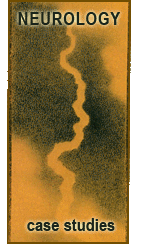Chinese Medicine Treatment of Brain Damage

Chief Complaint: Spasticity, inability to eat, speak, control movements
Western Diagnosis: Brain Damage caused by Anoxia during surgery
Medical History: Patient “D” was twelve-year old boy undergoing hernia surgery. Anesthesiologist forgot to set blood pressure cuff and D had ten minutes when his brain had no oxygen. His muscles seized, could not breathe on his own, was fed through tube, could not walk, speak or toilet himself. D could only “blow raspberries” at his mother to show disapproval but could not blink his eyes voluntarily.
Questioning exam: Because patient could not communicate directly, I am listing signs. Functional symptomatology listed above in relevant medical history. Patient was pale, muscles on arms and legs were contracted and spastic. He had appearance of “puppet” — almost like “wooden” boy. He had been a piano prodigy and a skilled soccer player before the surgery, however when I saw him for the first time (four months after the “accident”, he could not stand, his feet and fingers were contracted. However, when I played Mozart for him during treatments, his eyes lit up and he began vocalizing “ah, ah, ah” during pieces that he had played before the accident — when he still had use of his fine motor muscles. D’s skin and nails were very dry. His eyes were quite dry (however he was unable to close them voluntarily). D did wear “drypers” and had to be bathed by his nurses and fed liquid meals through his feeding tube. He could not control his urine or bowel evacuation. He was cold all the time and needed to be covered in blankets. He was not growing or developing.
Pulse exam: Pulse was overall very deep and weak. When palpable it disappeared with pressure.
Tongue exam: Tongue was deviated but flabby and pale.
OM Diagnosis: Sudden anoxia caused muscles and whole body not to be nourished. Severe blood deficiency causing wind in the channels. Because of injury to brain, kidney channel damaged — patient showing signs and symptoms of kidney yang xu — cannot control toileting, experiences cold, not developing.
Treatment Principle: Nourish blood and yin, clear wind.
Nourish kidney channel – yin and yang.
Point Prescription: St 36 GB 34 GB 39 Liver 2 Liver 3
Spleen 10 Spleen 6, LI 4, LI 11, Ear shenmen, Kidney 3, Kidney 7, Kidney 9. Moxa used on St 36, Ren 4, 6, 8 and Kidney points. Patient could not lie on his stomach until several months into treatment, at which point I added UB23, UB17, UB18, UB15 and SI points around the shoulder to relax rhomboids. These points were not all used concurrently, but varied over the course of treatment.
Herbal Formula: Began with raw herb formula-his mother would pour it down feeding tube.
Liu Wei Di Huang Wan Jia Wei
(added Gou Qi Zi, Che Qian Zi,
Rou Gui, Fu Zi, Dang Gui, Loranthi,
Bai Shao, etc.
This formula was augmented as he began to “come back to life”. I teased him and called him “pinocchio”. He was like the wooden boy who softened and whose movements became more fluid. After six weeks of these herbs and two acupuncture treatments per week, his large family had a big party and took him to JC Penny to buy undershorts because he could finally control his urination and bowel movements. Within a few months he could blow kisses at his mother, articulate words, yell at me (liver qi stagnation emerged as he strengthened, but then again he had finally entered puberty and was an adolescent in all ways, including his demeanor.)(D did grow, develop, voice deepened, etc.).
Lifestyle Prescription: D was receiving speech and occupational therapy at the hospital twice weekly. When I learned he loved marine life we searched for dolphin therapy on the internet and found a site in Southern Florida where he ended up going quarterly with his family. His parents felt that he made huge developmental strides from his time in the water with the animals.
Results: As written above, D was helped in a big way by Traditional Chinese Medicine. When he began to feed himself and the feeding tube was removed, his improvement slowed to a “not-so-dramatic” pace — because he fought taking the herbs which had helped him so significantly — and had also become a “moody” teenager.
Synopsis: When I last saw D, he was walking, talking (not totally clearly, but we could understand his words). He was attending school for a half day with his nurse as his shadow. He could shower himself, take himself to the bathroom, spend time laughing with his friends, and was securing a voice-prompt computer system so he could be on email to his friends and family. He could walk by himself and even on stairs — but at the time I saw him last, he was still experiencing spasticity in his forearms and fingers and could not perform fine motor skills. He doctors were mediating this a small amount with quarterly botox injections into the joints, but without significant success. It is so interesting that when D’s brain began to function again, it was as though he were an infant going through early stages of development — his function returned in the same “order” as if he were developing for the first time.
D no longer lives in the same city as I but touched my life significantly. I learned so much in treating and in knowing him. He is very brave young man.
 Last modified: September 8, 2009
Last modified: September 8, 2009  Tags: Acupuncture, brain damage В· Posted in: Neurological
Tags: Acupuncture, brain damage В· Posted in: Neurological
